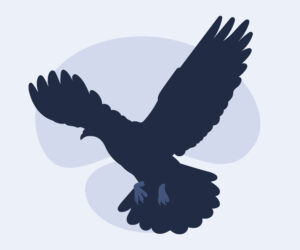Ethical Dilemmas

Tu ShaheeN Hai Parwaaz Hai Kaam Tera Tere Saamne Aasman Aur Bhee Hain
You are the great Eagle, your passion is flight, look ahead,
there are more skies to transcend.
— Muhammad Iqbal (1915; trans. 1920)
In Part II of this book, Master of Education students from a university in the interior of British Columbia, Canada, share their analysis of real-world dilemmas in higher education as part of an assignment for a leadership course. The student population is diverse with representation from countries around the world, including Argentina, Canada, China, Columbia, India, Mexico, and Nigeria, to name a few. They offer diverse perspectives, informed by their lived experience, social positions, disciplinary backgrounds, and cultural histories.
The course EDUC 5990: Ethical Concerns and Contemporary Issues in Higher Education Leadership was first offered in September 2024. It was designed with a critical open education philosophy in mind, and incorporated sustainable/renewable assignments. The major project for the course was a case assignment.
Case Study Assignment
In teams, students co-created a case study by investigating and critiquing leadership approaches to an ethical dilemma in higher education. The cases were informed by a literature review of scholarly and popular sources. Using the template provided, students wrote a critical analysis of a leader’s decision-making process, discussed the impact of their decision on multiple community members and groups (i.e., students, faculty, surrounding community), and proposed an alternative solution using multiple ethical lenses.
Ethical Dilemmas Case Study: Assignment Criteria and Templates
Literature Review
-
- Case Study Literature Search and Thematic Analysis Grid (PDF)
- Thematic Analysis Grid Template (excel spreadsheet)
- Supplemental learning module: Literature Review Essentials – https://learninghub.trubox.ca/module/lit-review/
Case Study
Engaging students as co-authors of this text, we strived to empower them as change agents “as they investigated and gathered data on their community, its cultures, and its problems” (Furman, 2004, p. 227). This represents a shift from the neoliberal view of students as consumers (Brown, 2015) to primary researchers and active agents in their learning and that of others (Hoare & Goad, 2021).
Students’ case studies will be published in January 2025. Once available, we encourage readers to critique the students’ analysis of the cases and the relevance and feasibility of their imagined alternative solutions to the dilemmas.
Open Anthology of Cases: Note to Faculty Considering Adopting this Assignment
To facilitate a growing collection of academic works that are freely accessible to the public, we provide this space as an open anthology. If you are a faculty member teaching a similar course in leadership ethics and are looking for a platform for students to share their case studies, please contact Alana Hoare at ahoare@tru.ca to discuss publishing students’ work in this text.
If you choose to adopt or adapt this textbook, please consider filling out this survey to help us better understand how it is used and fits with the needs of our readers.
References
Brown, W. (2015). Undoing the demos: Neoliberalism’s stealth revolution. Zone Books.
Furman, G. C. (2004). The ethic of community. Journal of Educational Administration, 42(2), 215–235. https://doi.org/10.1108/09578230410525612
Hoare, A., & Goad, P. (2021). From invitation to inclusion. The Beacon, 3(3). https://nwccu.org/news/v3i3-nwccu-quality-culture-project-from-invitation-to-inclusion/
Iqbal, S. M. (1920). Secrets of the Self (Asrar-i khudi): A philosophical poem (R. A. Nicholson, Trans.). Macmillan & Co. https://archive.org/details/secretsofselfasr00iqbauoft/page/n5/mode/2up?view=theater
Media Attribution
- “Hand drawn flying dove silhouette” by Freepik is used under the Freepik Terms of Use.

